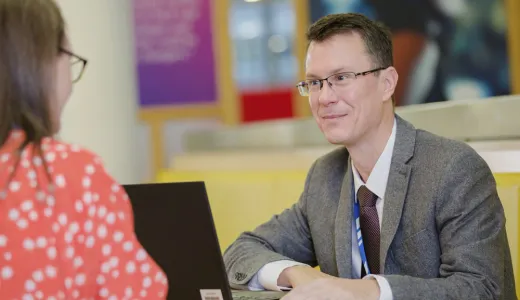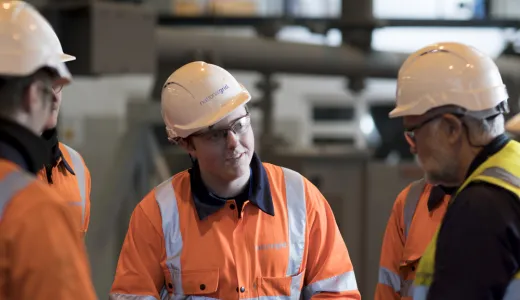Building the net zero energy workforce
The UK is on a journey to reach net zero greenhouse gas emissions by 2050. The energy sector plays a vital part in helping the country to make this transformational change, but to deliver on this ambition we need to build a Net Zero Energy Workforce*. We need people with the talent, the drive and the passion to help us tackle climate change.
Our Building the Net Zero Energy Workforce Report looks at what skills and expertise the energy sector will need to help the UK reach its emissions target. Working with independent research partner Development Economics and YouGov we discovered that our industry needs to recruit for 400,000 jobs between now and 2050 to get the UK to net zero.
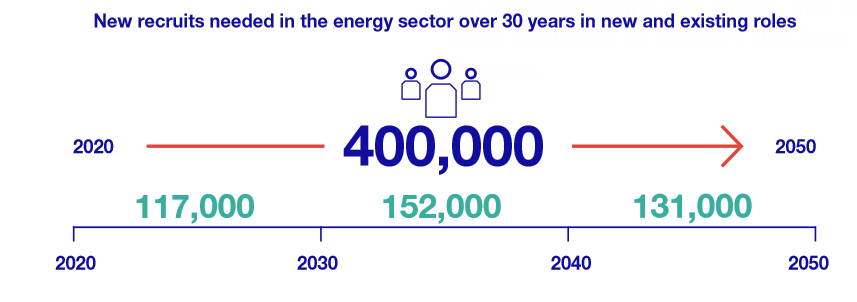
These opportunities will open up around the country, and will require a diverse mix of skills, from scientists and engineers, to communications professionals and data specialists.
There’s a lot of work to be done to attract the brightest and the best people to help us transform the energy industry to deliver a greener, cleaner future. For us it's The Job That Can’t Wait.
* The roles included in this analysis are those involved in the operation, generation, transmission, distribution and retail of energy in the UK, as well as those in the supply chain related to building, upgrading, maintaining or operating infrastructure required to reach net
Image

The Net Zero Energy Workforce Report
|
Building the Net Zero Workforce: an overview
Climate change is the defining challenge of this generation. The decisions we take now will influence the future of our planet and life on earth. We know what we have to do: change the way we live to curb harmful emissions and reach net zero by 2050.
To succeed, every industry, workplace and home will need clean energy. Transforming our national infrastructure so we can generate and distribute clean energy takes time – and the clock is ticking. The energy sector must lead the way and act now to set the UK on the right course.
This decade alone, the industry must:
|
Viable technologies are emerging. The political commitment is there. Investment will be needed. But none of this will happen if we don’t have the right people, with the right skills to deliver. Motivated to tackle climate change, equipped with the skills to transform our energy grid – the UK needs a Net Zero Energy Workforce.
Building the Net Zero Energy Workforce Report
You can download the full report here.
The report sets out to understand how the energy sector can build a Net Zero Energy Workforce able to transform the UK’s energy system over the next 30 years.
The challenges we face include:
|
The 400,000 breaks down as:
|
Tens of thousands will be needed in every region across the UK, with significant employment opportunity in the North where nearly 100,000 jobs will become available, the Midlands (over 50,000 jobs) and the devolved nations of Scotland, Wales and Northern Ireland (nearly 90,000 jobs). Net Zero Energy Workforce jobs will include civil, mechanical and electrical engineers, data analysts, machine learning experts and skilled tradespeople. New roles linked to electric vehicles, hydrogen, and carbon capture technology will emerge.
The good news is that people are increasingly motivated by a job with purpose, and the energy sector has a clear mission at its heart. Over three quarters of UK adults (78%) want to play a part in reaching the UK’s net zero goal and more than half (57%) want to work for an organisation that helps get us there. Tapping into this powerful motivator is key to building a diverse and effective Net Zero Energy Workforce.
National Grid believes everyone with a stake in the UK’s energy system must align behind strategic priorities that address the challenge and collaborate to achieve them at scale. To succeed we must:
|
Transforming the UK’s energy system to meet our net zero target is one of the greatest challenges the country faces. To succeed we must be single minded in our focus and collaborative in our approach to building a skilled and motivated Net Zero Energy Workforce. It’s the job that can’t wait.
Get to know our Net Zero Energy Workforce
We’re already building the Net Zero Energy Workforce. Here you can discover the vital work our people are doing to help us reduce emissions. From machine learning experts to graduate engineers, discover the diverse skills we’re gathering to help us transform the energy system for the future.
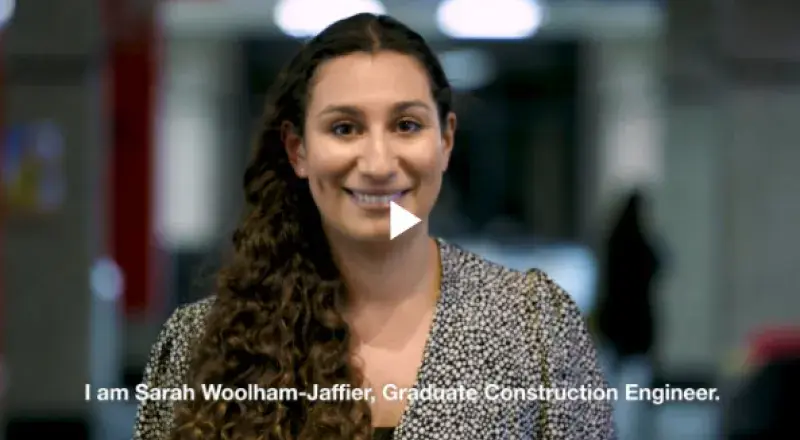
Meet Sarah
Sarah Woolham-Jaffier is a Senior Innovation Engineer who's passionate about tackling climate change at home and at work
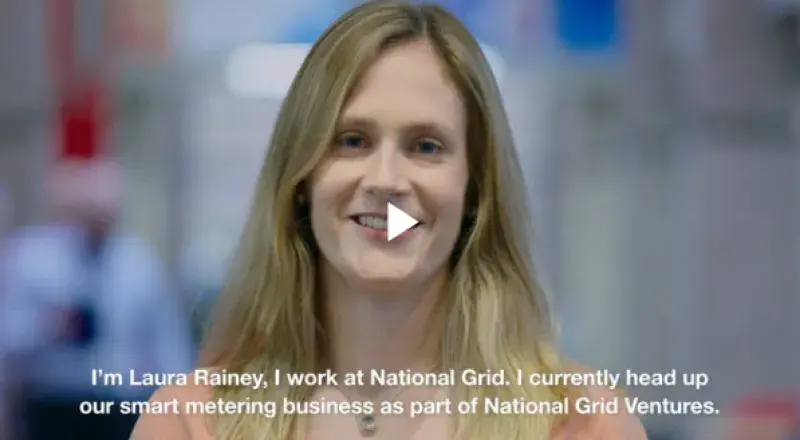
Meet Laura
Laura Rainey was one of the first people to study climate change as a Master's degree. Now she's a Senior Manager for Smart Distributed Energy using her skills to help deliver net zero
Meet more of our Net Zero Energy Workforce
Lyndon Ruff: making a difference to carbon intensity via data
As Lead Data Scientist Lyndon uses machine learning to predict how the weather will impact solar and wind power production. He’s also part of the team that created carbonintensity.org.uk
The Job That Can't Wait
The progress we make over the next decade is pivotal to finding the solutions to tackle climate change.
We need a Net Zero Energy Workforce equipped with the right skills and the enthusiasm to help us build a cleaner, greener energy system. We need smart people to help us bring more electric vehicles onto the roads, make sure we are powered from renewable energy sources and introduce lower carbon ways to heat our homes.
We need people to join us to do The Job That Can’t Wait.



